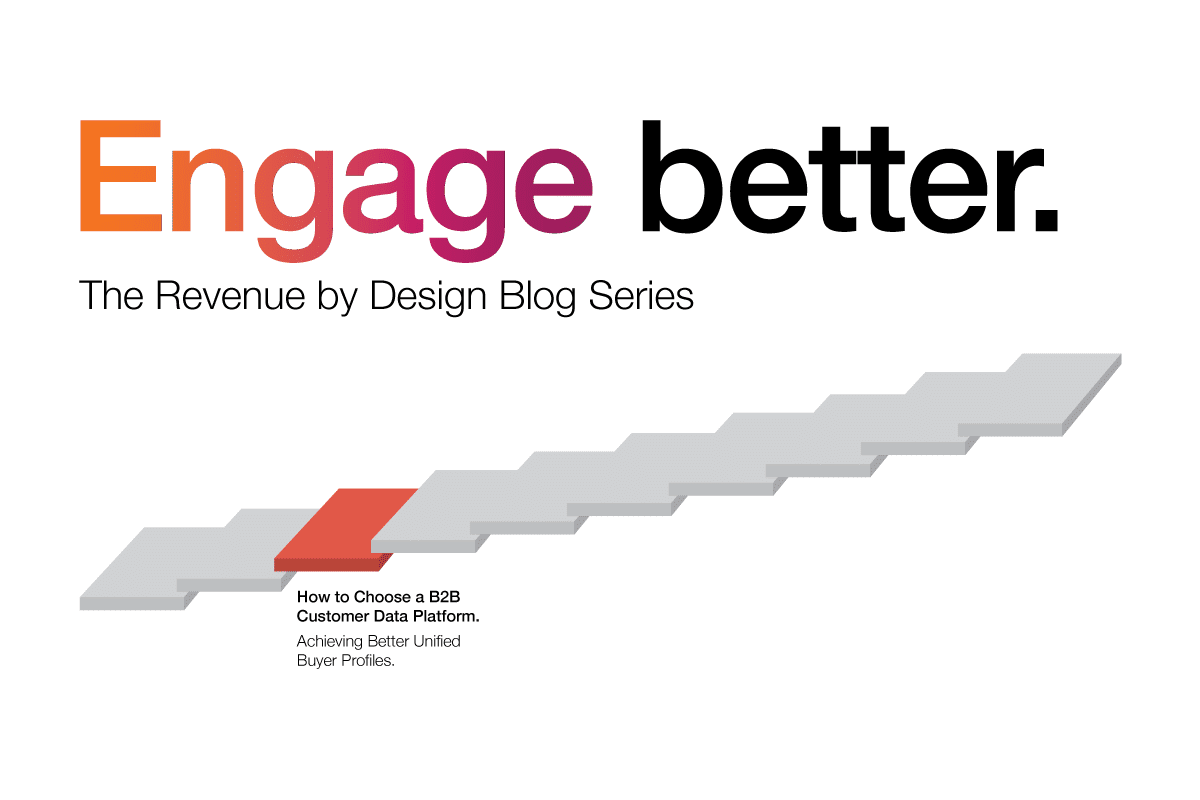In the last two blogs we’ve discussed how to get the best data together to drive complete, accurate and easily managed buyer profiles. Sales & Marketing teams know that targeting customers with incomplete and siloed data is tricky at best. Having a single, comprehensive view of your customer’s data in one place makes targeting the right people at the right time with personalized campaigns much more lucrative – but creating unified customer profiles by hand isn’t easy. To automate that process, companies are beginning to implement Customer Data Platforms (CDPs), which empowers sales & marketing teams to seamlessly blend all of their siloed customer data into a single source of truth at multiple levels – profiles for people, accounts, and buying center. Furthermore, with a CDP, those unified profiles (or customer graphs) are automatically updated in real-time as source data changes and new data is ingested.
However, with numerous tools available, it’s important to understand that not all CDPs are the same, so you need a way to determine which is the most qualified to handle your data needs. Consider leading research and advisory companies like Forrester, who recently published The Forrester New Wave™: B2B Standalone CDPs, Q4, 2021.
In Forrester’s evaluation of 14 leading B2B CDP companies, Forrester considers several factors to compare each CDPs’ Identity Resolution and Unified Profiles framework. Forrester started by looking at each CDPs’ identity resolution services and if the process was user-configurable. They wanted to know if (and how) the solutions create unified profiles at the account, buying group, and contact level. Finally, Forrester looked at each solution’s ability to create a persistent store of unified profiles and if they offer B2B Revenue Waterfall™ enablement. In their report, Forrester differentiated Leadspace as a leader in Identity Resolution & Unified Profiles! Now let’s dive deeper into Leadspace’s Identity Resolution & Unified Profiles framework.
Our identity resolution framework is based on deterministic/probabilistic identifiers (IDs). Unique/non-unique company and person IDs are used in clustering algorithms to unify profiles and validate/dedupe data. Unification logic is customer-configurable for business needs. For scalability, we use probabilistic IDs, PII and anonymous, to complement unique IDs for matching. Probabilistic clustering leverages decision trees (XGBoost) and other algorithms.
Clients that deploy B2B Revenue Waterfall™ leverage us to support execution on the model. In order to optimize for accuracy, we use deterministic IDs for following types of unique Person and Company data. Our Person Unique Identifiers include Workmail, Webmail, Social Profile, Phone, and Cookie/Device ID, and our Company Unique Identifiers include Domain, ID/DUNS, Social Profile, Phone, and IP.
We provide identifiers at different levels of the company hierarchy so you have the ability to unify and create single records/groupings at the global HQ level, Country HQ level, Business HQ level and/or at specific regional/site locations. Our account unification solutions are purpose built to support the operational structure of organizations from an identity perspective that meet marketing and sales needs, not just the legal structure. However, for example, our operational hierarchies can be mapped to D&B DUNs legal based hierarchies to provide this interoperable framework across functions and teams.
To put it bluntly, Leadspace’s Identity Resolution & Unified Profiles framework is one you can trust. To learn more about the benefits of implementing a CDP, and to see how Leadspace compares to other B2B CDPs in all 10 evaluated categories (and is ranked overall in the Forrester Wave), check out The Forrester New Wave™: B2B Standalone CDPs, Q4, 2021. Seamlessly create unified customer profiles to eliminate customer data silos and accelerate the success of your sales & marketing campaigns with Leadspace’s CDP.



